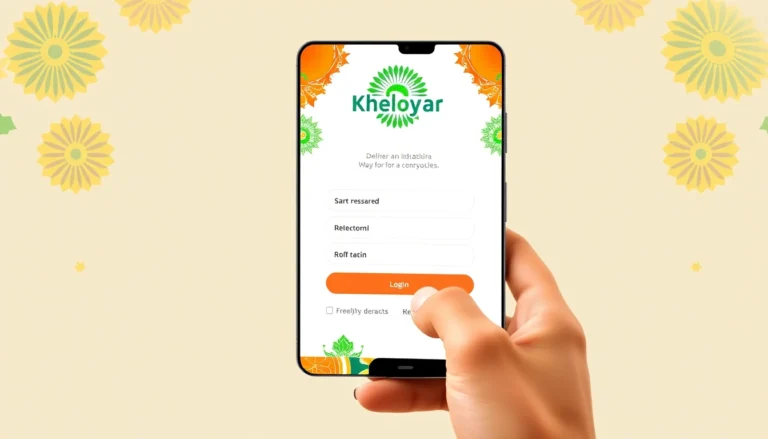Understanding the Need for a Contact Organizer in Small Teams
In today’s fast-paced business environment, effective contact management is pivotal for small teams striving to maintain personalized relationships, streamline communication, and foster growth. Unlike large enterprises equipped with complex CRM systems, small teams often face unique challenges—limited resources, need for agility, and more direct interaction with clients and partners. A robust contact organizer becomes not just a tool but a critical asset, simplifying the way small teams handle vast amounts of contact data, ensuring no opportunity slips through the cracks.
Traditional contact management methods—such as spreadsheets, fragmented email records, and manual note-taking—rapidly lose efficiency as teams expand or customer data proliferates. These methods are prone to errors, duplication, and data silos, hampering personalized outreach and collaborative efforts. This inefficiency can lead to missed follow-ups, disorganized information flow, and ultimately, lost revenue opportunities.
To combat these issues, innovative contact management software like Orvo – Best Contact Organizer for Small Teams has emerged as a game-changer, offering tailored solutions that address the specific needs of small teams. These platforms integrate data, automate routine tasks, and provide intuitive interfaces—making contact management a seamless, collaborative, and scalable process.
Challenges Faced with Traditional Contact Management
The typical pain points with conventional contact handling include:
- Data Fragmentation: Contacts scattered across email accounts, calendars, text messages, and physical notes, making it difficult to get a complete view of each contact.
- Manual Data Entry: Repeated manual input leads to errors and inconsistencies.
- Lack of Collaboration: Difficulty sharing contact information or updates within small teams limits effective teamwork.
- Time-Consuming Processes: Searching for contacts, updating records, and tracking engagement drain valuable time and resources.
- Limited Automation: Without automation, routine follow-ups or reminders depend heavily on manual execution.
Key Features That Small Teams Require
To optimize small-team contact management, software solutions should incorporate features such as:
- Intuitive User Interface: Easy onboarding and minimal learning curve to ensure rapid adoption.
- Centralized Contact Database: Single source of truth to aggregate all contact details, notes, and interaction history.
- Seamless Integration: Compatibility with email systems, calendars, social media, and other tools for comprehensive data syncing.
- Automation Capabilities: Automated reminders, follow-ups, and data entry to save time and reduce errors.
- Collaboration Tools: Ability to share contacts, assign tasks, and leave notes accessible to all team members.
- Mobile Accessibility: Access contacts on-the-go from smartphones or tablets, enhancing responsiveness.
- Security and Privacy: Robust data protection mechanisms, compliance with privacy regulations, and user access controls.
How Orvo Addresses These Needs Effectively
Orvo stands out as a premier choice among contact organizers for small teams by combining the essential features outlined above with a user-centric design, flexibility, and scalability. Its platform centralizes contacts, automates routine processes, and fosters collaboration—making it easier for teams to nurture relationships and grow their business efficiently.
For example, Orvo integrates effortlessly with popular email and calendar apps, ensuring your contact data is always current. The automation features handle follow-up reminders and task assignments, freeing your team from manual tracking. Moreover, its intuitive interface minimizes onboarding time and encourages team adoption. As your business scales, Orvo’s flexible architecture adapts to your evolving needs, maintaining performance without complexity.
How to Choose the Best Contact Organizer for Your Small Team
Evaluating User-Friendliness and Integration Capabilities
When selecting a contact management platform, simplicity is key. An interface that is easy to navigate reduces training time and encourages consistent use by all team members. Look for software that offers intuitive layouts, clear workflows, and minimal setup requirements. Integration capabilities are equally crucial—your chosen platform should seamlessly connect with existing tools such as Gmail, Outlook, Slack, and CRM systems to create a unified ecosystem.
For instance, Orvo integrates smoothly with common email and calendar providers, ensuring contact updates and activity tracking happen automatically. Compatibility with diverse platforms prevents data silos and reduces manual data transfer efforts. To assess this, consider requesting a demo or trial version to verify the ease of integration and user interface from your team’s perspective.
Assessing Customization and Collaboration Features
Small teams thrive on flexibility. Your contact management system should allow customization—such as tagging contacts based on project, location, or priority—and support collaborative features like shared notes, contact assignment, and activity feeds. These functionalities enable teams to coordinate efficiently, track communication history, and ensure everyone stays aligned on contact status.
Orvo, for example, provides customizable contact fields and collaborative tools that allow team members to leave notes, set follow-up reminders, and share contact updates effortlessly. Such features foster a transparent environment where all team members have up-to-date information, reducing miscommunication and duplication.
Pricing, Scalability, and Support Options
Choose a platform that offers transparent pricing aligned with your team’s size and growth plans. Many solutions provide tiered plans, allowing you to start with essential features and scale up as needed. Additionally, consider the vendor’s customer support, training resources, and community presence to ensure ongoing assistance.
Orvo’s flexible subscription plans, coupled with dedicated customer support and comprehensive onboarding resources, make it a reliable choice for small teams aiming for long-term success. Scalability is vital—your contact management system should evolve with your business, adding features and capacity without disrupting daily operations.
Implementing Orvo for Your Small Team’s Contact Management
Step-by-Step Onboarding and Setup
Effective implementation begins with a structured onboarding process. Start by defining your contact management goals and key data points. Then, set up your Orvo account, customize contact fields, and establish user access levels. Import existing contact data from spreadsheets, email platforms, or legacy systems, ensuring duplicates are merged and outdated info is archived.
Next, connect Orvo with your email and calendar tools to enable automatic synchronization. Ensure integrations are configured correctly—test the setup by sending a test contact or schedule a follow-up reminder. Documentation and guided tutorials provided by Orvo can streamline this process and help your team grasp core workflows.
Training Your Team for Optimal Use
Comprehensive training is essential for maximizing platform adoption. Conduct live demos, create quick-reference guides, and reinforce best practices for data entry, collaboration, and automation. Encourage team members to ask questions and share tips to build collective expertise.
Leverage Orvo’s support resources, such as tutorials and help centers, to address common onboarding challenges. Regular check-ins during the initial months can help identify bottlenecks and adapt workflows, ensuring the entire team benefits from the system’s capabilities.
Monitoring and Improving Contact Organization
Post-implementation, continuously monitor contact data quality, engagement metrics, and team feedback. Use built-in analytics or third-party integrations to assess follow-up success, communication timelines, and overall contact health.
Use these insights to refine your contact tagging, segmentation, and automation rules. Periodic audits and cleanup routines help maintain data integrity, enabling your team to make data-driven decisions that enhance customer relationships and drive growth.
Benefits of Using Orvo for Small Team Contact Management
Enhanced Team Collaboration and Communication
Orvo facilitates real-time sharing of contact information, notes, and activity updates, creating a transparent environment where every team member stays informed. This collective knowledge base reduces redundant efforts and ensures consistency in outreach.
Time-Saving Automation and Organization
Automated reminders, follow-up scheduling, and data synchronization reduce manual workload, allowing your team to focus on high-value interactions. Organization features like customizable tags and filters enable quick access to relevant contacts, boosting productivity.
Data Security and Reliable Support
Data security is paramount. Platforms like Orvo incorporate encryption, access controls, and compliance standards to safeguard sensitive contact information. Robust technical support and ongoing updates ensure your contact management processes remain secure, efficient, and compliant.
Measuring Success with Orvo in Your Small Business
Tracking Contact Engagement Metrics
Success begins with measurable outcomes. Use Orvo’s analytics tools to track email open rates, response times, and follow-up completion rates. These metrics reveal engagement levels and help identify contacts or segments requiring additional attention.
Optimizing Contact Data for Better Outreach
Regularly review and update your contact data to maintain accuracy. Segment contacts based on engagement patterns, demographics, or past interactions to tailor your messaging and maximize conversion rates.
Scaling Your Contact Management Strategy
As your team grows, leverage Orvo’s scalability to incorporate new contacts, additional team members, and expanded automation workflows. Use data insights to refine outreach strategies and expand your customer base sustainably.








